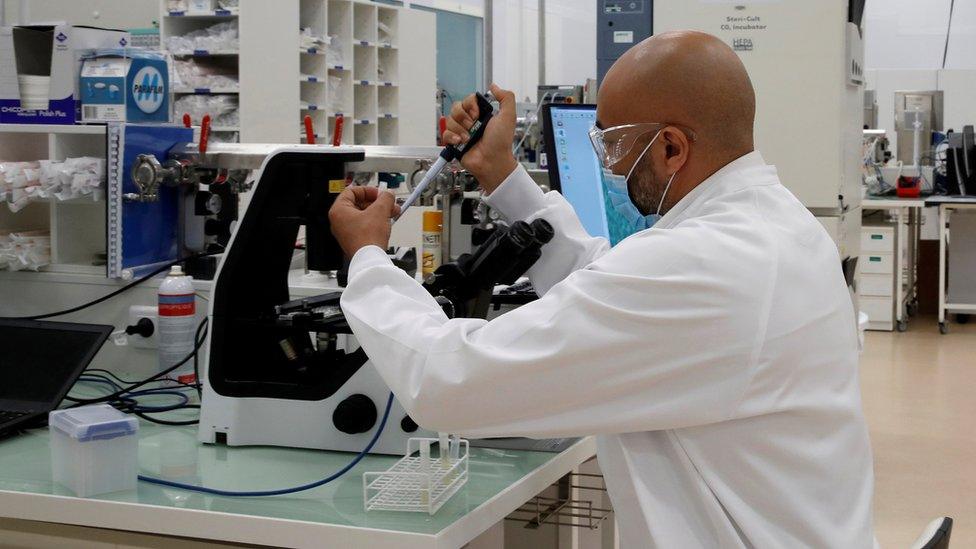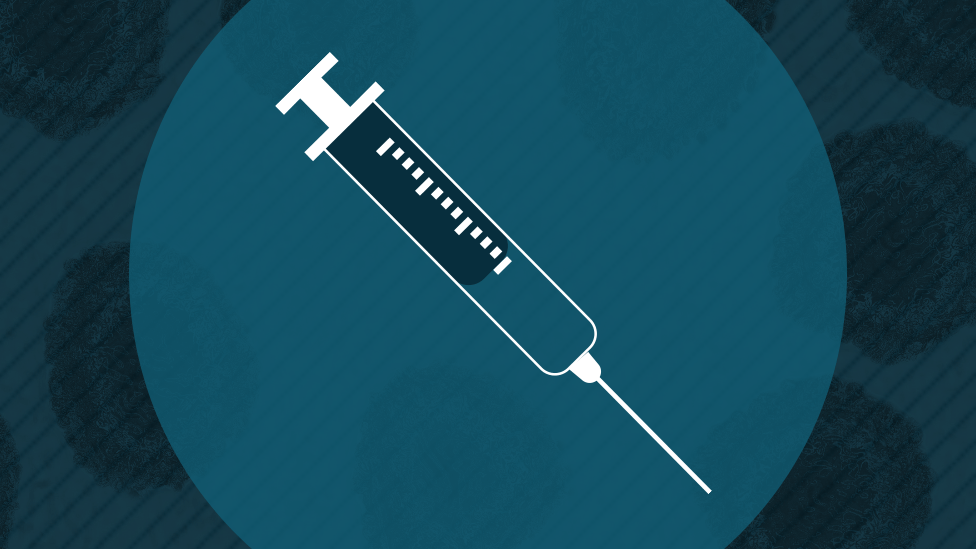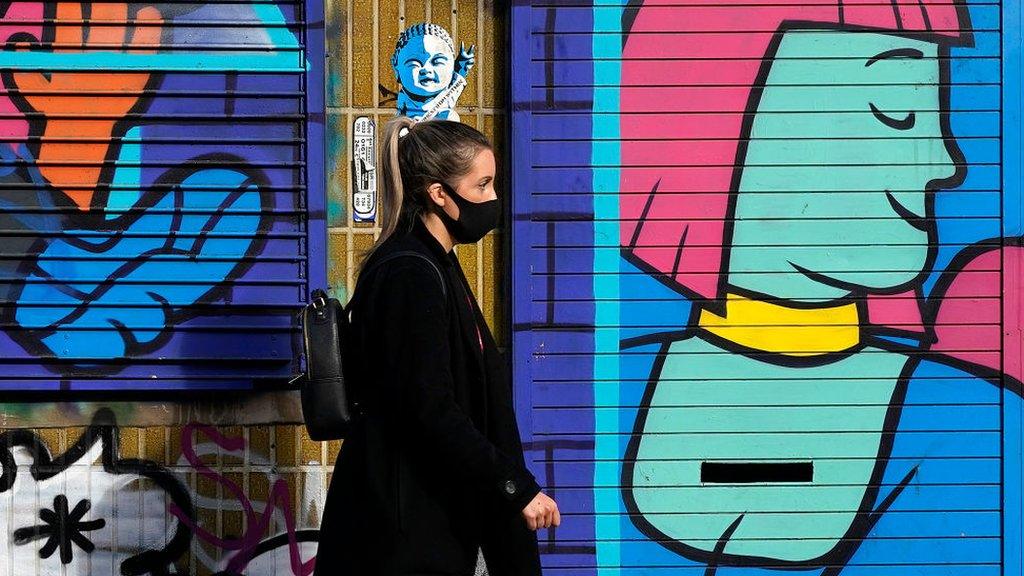GSK and Sanofi make global Covid vaccine supply deal
- Published
- comments

Drug companies GSK and Sanofi will supply 200 million doses of their coronavirus vaccine candidate to a global inoculation scheme.
The two companies' vaccine is going through the first stages of testing.
There is no internationally approved treatment for Covid-19, which has killed more than 1.16 million people.
Meanwhile, GSK said it expects 2020 earnings to be at the lower end of forecasts, because Covid has disrupted vaccinations for other diseases.
GSK and Sanofi will supply their vaccine candidate to the Covax scheme, which is backed by the World Health Organization (WHO).
Covax, which aims to deliver two billion vaccine doses around the world by the end of 2021, has already signed agreements this year with AstraZeneca and Novavax.
It aims to discourage national governments from hoarding Covid-19 vaccines and to focus on vaccinating high-risk people first in every country.
More than 180 nations, including China, have joined the plan, but some, including the US, have opted to stick with their own supply deals.
Sanofi and GSK signed a $2.1bn (£1.6bn) deal with Washington during the summer to supply it with more than 100 million doses of the same vaccine, which they hope to present for regulatory approval next year.
The companies also have similar agreements with the EU, the UK and Canada.
They hope to have the first results of the trial by December. If it is successful, they will move on to further trials by the end of the year.
Vaccine race
About 20 pharmaceutical companies are holding clinical trials in the race to find a vaccine.
The partnership between the UK's GSK and France's Sanofi uses the same protein as one of Sanofi's seasonal influenza vaccines.
It will be coupled with a substance that acts as a booster to the vaccine made by GSK.
Sanofi is also working on another vaccine project with US company Translate Bio that will use messenger RNA molecules to instruct cells in the body to make coronavirus proteins that then produce an immune response.
Earlier this week, pharmaceutical company AstraZeneca said the vaccine it is developing with Oxford University produces an immune response in both young and old adults.
Inoculation prospects
On Wednesday, the woman in charge of procuring possible Covid-19 vaccines for the UK said that rollout of the earliest shots could start this year, though their effectiveness was likely to be limited.
The UK has agreed supply deals for six candidates. The UK government has ordered 100 million doses of the AstraZeneca vaccine, which is one of the frontrunners, along with Pfizer.
"If the first two vaccines, or either of them, show that they are both safe and effective, I think there is a possibility that vaccine rollout will start this side of Christmas," Kate Bingham, the chair of the UK Vaccine Taskforce, told the BBC.
"Otherwise I think it's more realistic to expect it to be early next year."
GSK laid out its expectations for full-year earnings in February, before the pandemic became a worldwide phenomenon.
Steve Clayton, a fund manager at Hargreaves Lansdown, said: "Few companies this year will be reporting numbers in line with their pre-pandemic expectations.
"But despite the impact of fewer patients visiting their GPs for everyday vaccinations, the group has been able to keep earnings pretty much on track."
- Published28 May 2021

- Published27 October 2020
